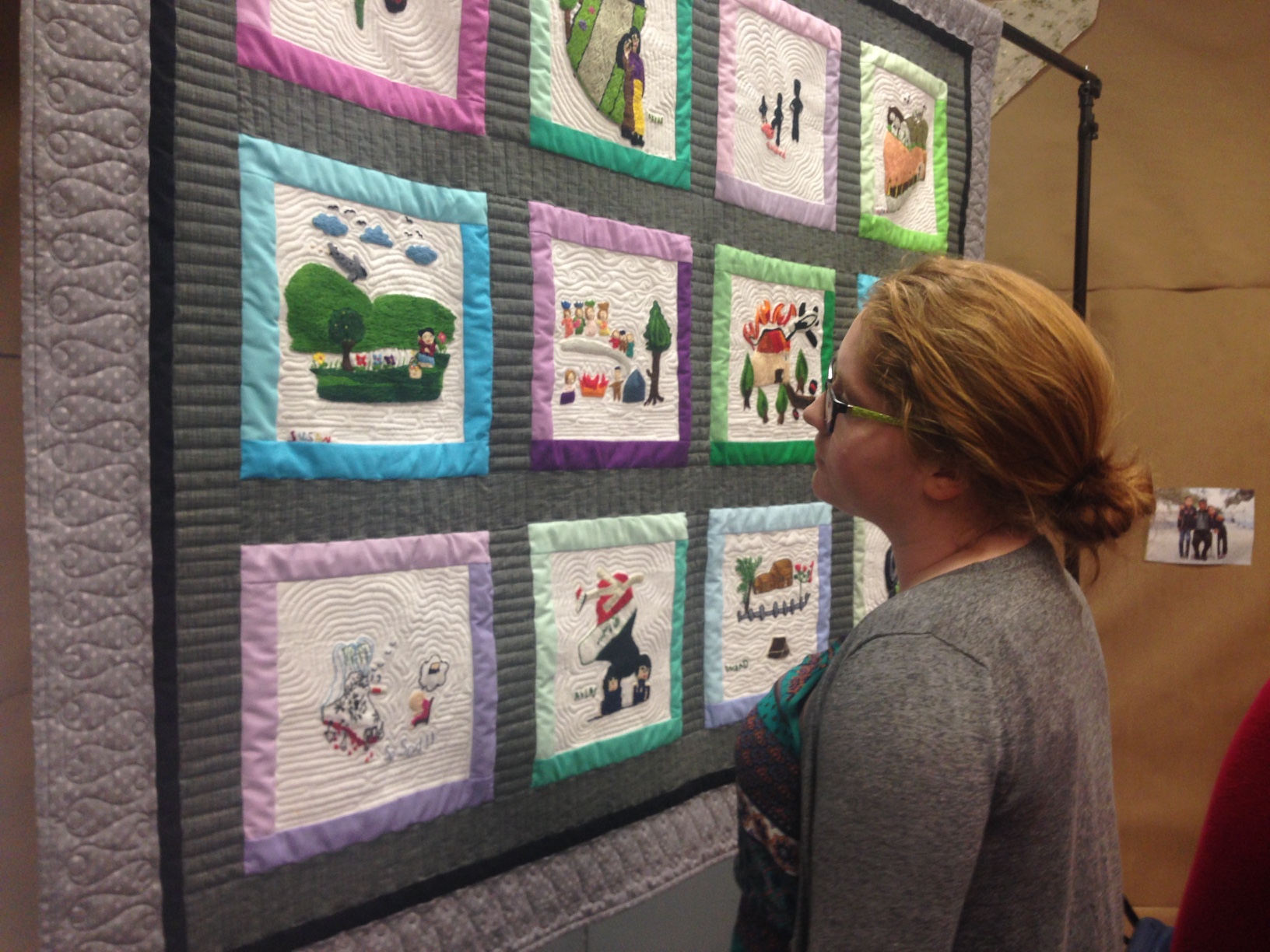While speaking at the University of Maryland Hillel’s Global Justice Shabbat on Feb. 24, Marc Gopin, the director of the Center for World Religions, Diplomacy and Conflict Resolution at George Mason University, said he spent his childhood in Boston and only associated with other Orthodox Jews — fearful of those outside his religion.
But one of his rabbis eventually helped him overcome these anxieties, he said. So when he was invited to Syria in 2003, he accepted the offer to go to the country he once considered “the world [he] feared most,” due to the wars and the Bashar al-Assad regime — marking the beginning of his work with Syrian refugees.
Gopin visited a refugee camp in Turkey shortly after the Arab Spring protests of 2011, ushered through the barbed-wire gates by men armed with machine guns. Surrounded by children crowding to see and touch an outsider, Gopin said he froze when it was time for him to leave.
“For the first time in my life I wanted to stay in a concentration camp, voluntarily,” Gopin said. “In a bizarre sort of way, it was healing for me because this time it wasn’t Jews, it was someone else and I was the one who wanted to be with them. It was my opportunity to heal history.”
Gopin was selected to be the keynote speaker for Maryland Hillel’s annual event, which this year placed an emphasis on the Syrian refugee crisis. Gopin has trained thousands of people across the globe in conflict resolution and peace-building strategies, according to the George Mason University website. He occasionally takes groups students with him to volunteer in refugee camps, he said.
Talia Orencel, Maryland Hillel’s director of engagement and social justice, said she and her students chose to focus on Syrian refugees because it’s an enduring crisis that only recently captured the attention of the news media. The topic became “more relevant than ever” after the election of President Trump, Orencel added.
In January, Trump signed an executive order banning travel from citizens of seven Muslim-majority nations for 90 days and refugees from Syria indefinitely. The order has since been struck down in court.
There are more than 4.8 million Syrian refugees in Turkey, Lebanon, Jordan, Iraq and Egypt, according to Amnesty International. Moreover, around 13.5 million people inside of Syria are in urgent need of humanitarian assistance, according to the United Nations.
About 150 people packed into a room within the Maryland Hillel Center and sat at tables topped with small portions of dry rice, beans, sardines and flour — representing the scant amount of food refugees are allotted in their camps.
Two quilts made by Iraqi and Syrian refugees, tiled with depictions of their experiences and memories, hung on the walls. One featured children on a playground with an airplane dropping bombs in the distance.
Gopin emphasized the power of touch to those in attendance by recounting another story when he met a tortured refugee man with a broken spine.
“I held his arm,” Gopin said. “He was speaking endlessly of things and weeping uncontrollably and we just held him, because sometimes that’s all you can do — solidarity — to be with someone.”
A Syrian refugee, Qutaiba, who did not reveal his last name because of his undocumented status, spoke about his personal experiences fleeing the country with his brother. When the Arab Spring revolution swept through his country in 2011, Qutaiba had no “question whether to participate or not,” he said. He was detained three times.
The last time the Syrian government arrested him, he said, they threatened to go after his brother as well – spurring Quitaba to take him and leave.
“We left because we didn’t have a sense of freedom,” Qutaiba said.
Though Qutaiba and his brother had a place to stay, he said he visited refugee camps to connect with the people there. The camps were filled with “no sense of home” and no “sense of future or stabilization,” he said. Qutaiba has since lived in the United States, where he said he’s enjoyed his freedom.
“You can’t find that in Syria,” he said.
After the speakers, students were urged to reflect on what they heard and talk with others at their table about how they could take action.
Orencel said she was amazed by the students’ “passion and dedication to get to know more about social justice issues on the campus,” as well as their desire to make a change.
[Read more: College Park City Council and community welcome Syrian refugees]
Isaac Betaharon, a freshman biology major, said he attends Shabbat dinners frequently, but described this event as an eye-opening experience, noting that the talks helped “connect us as human beings.”
Rebecca Hefter, a senior early childhood general and special education major, said she was touched by the stories she heard.
“We’re all humans and it doesn’t matter where we come from,” Hefter said. “We’ve all been refugees at some point and we need to remember that aspect of it.”



